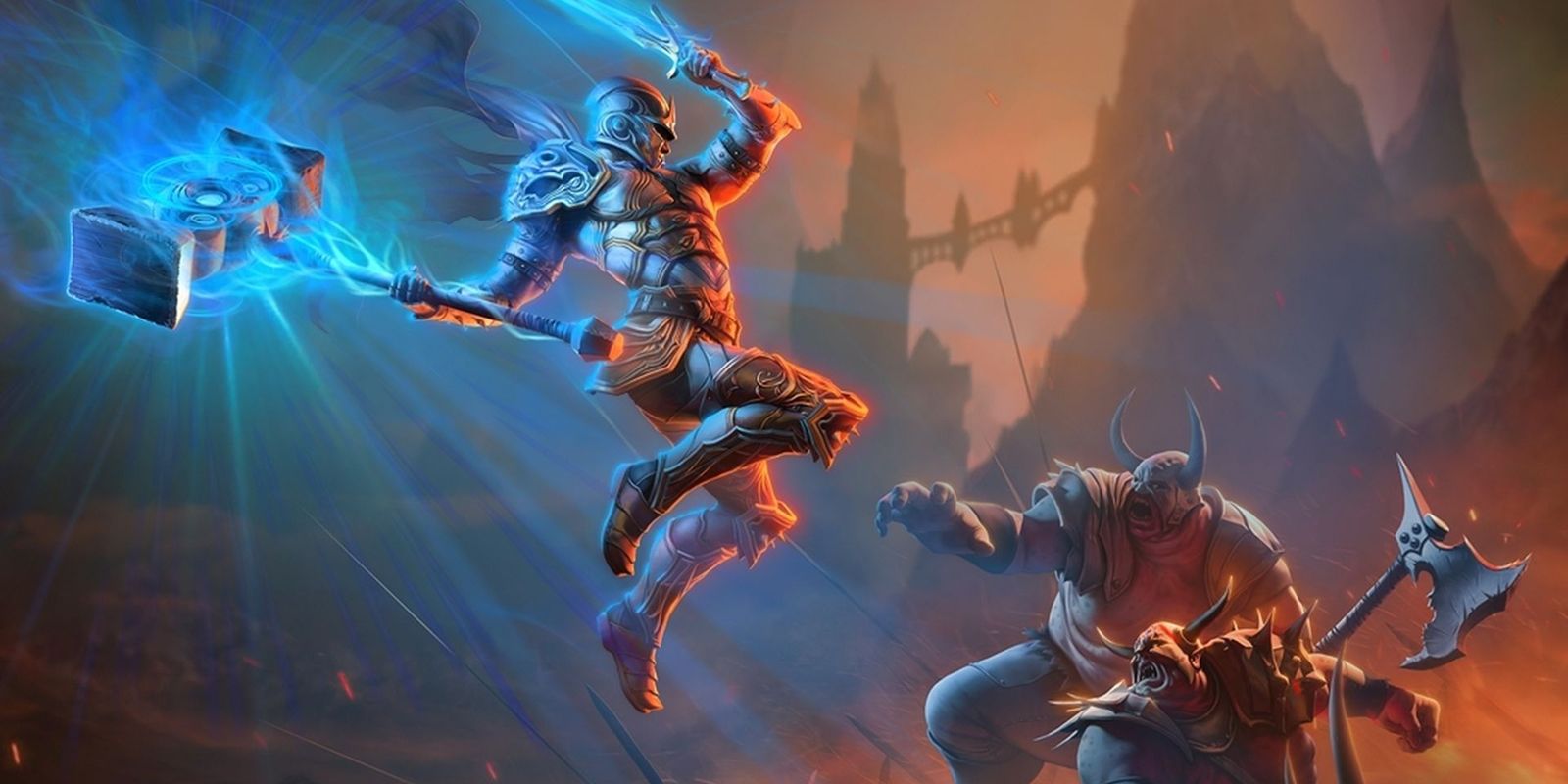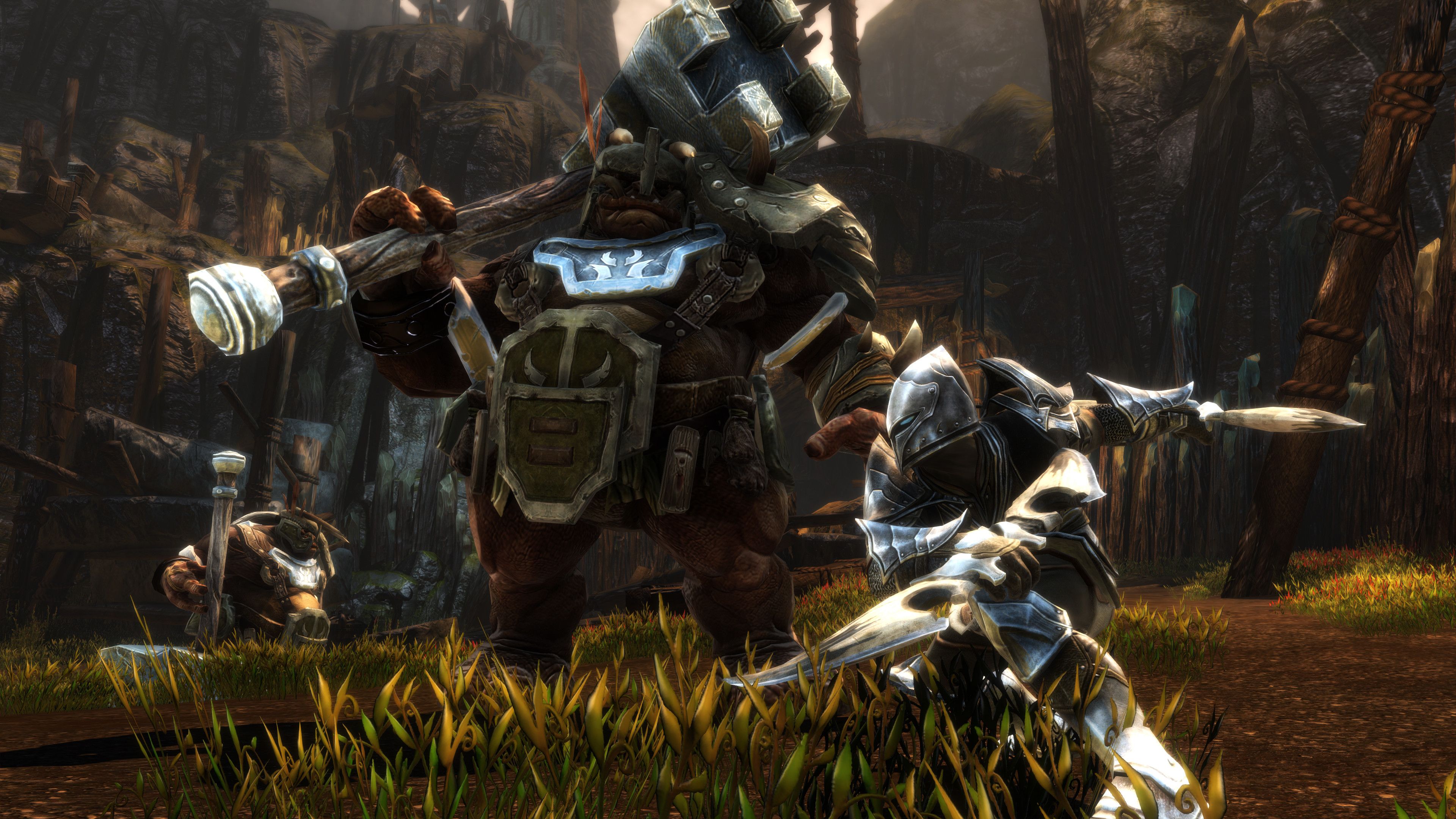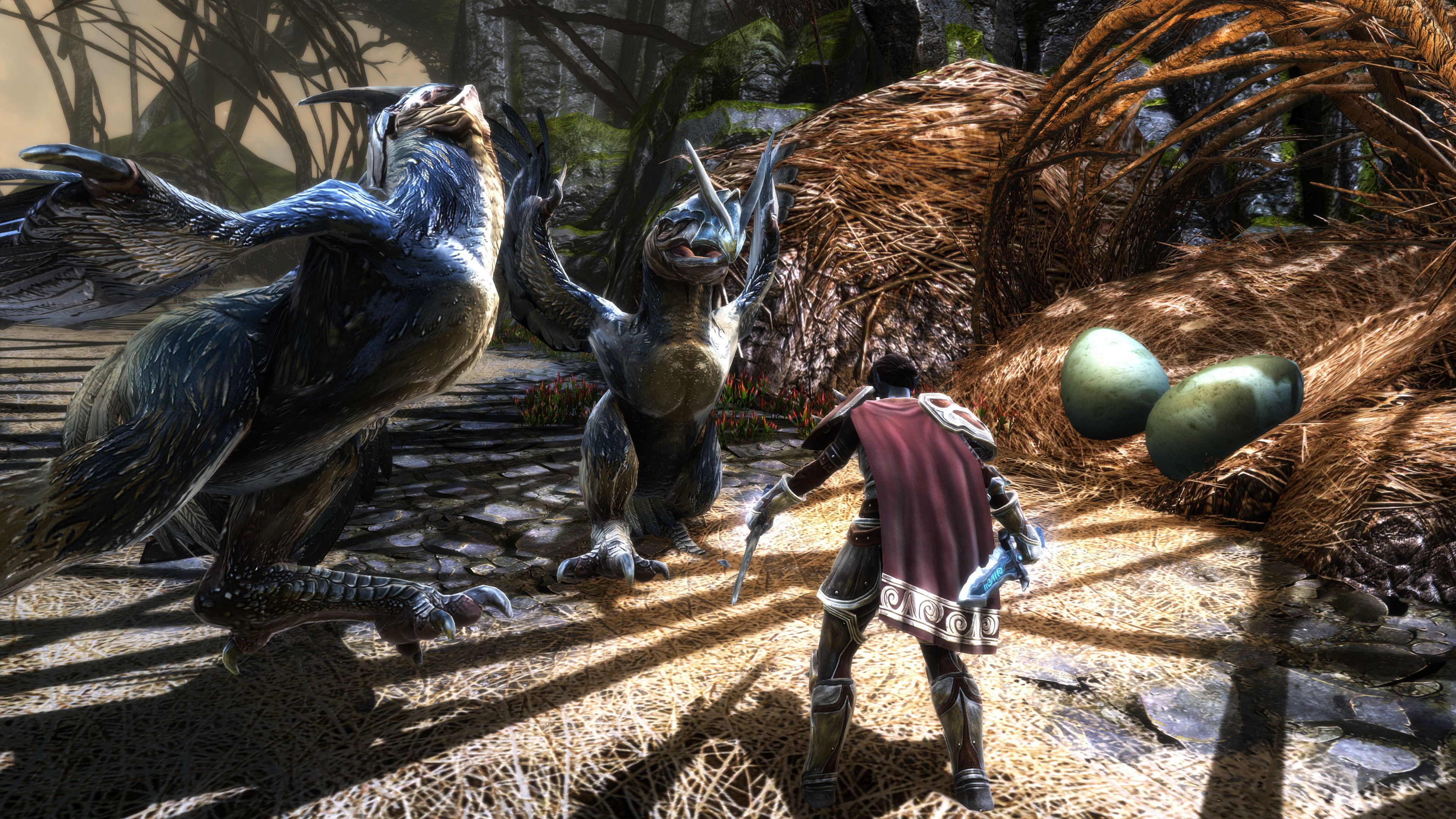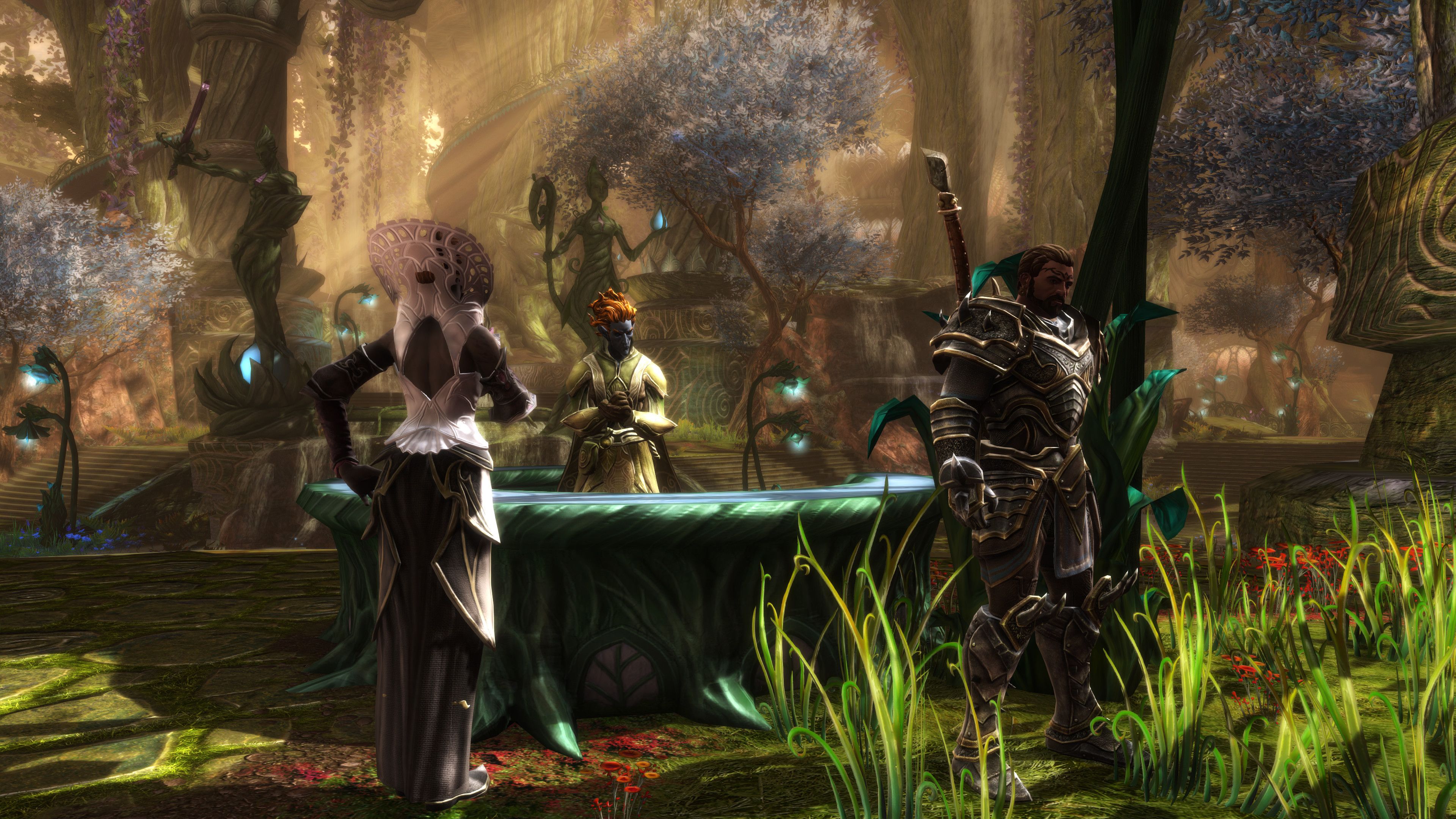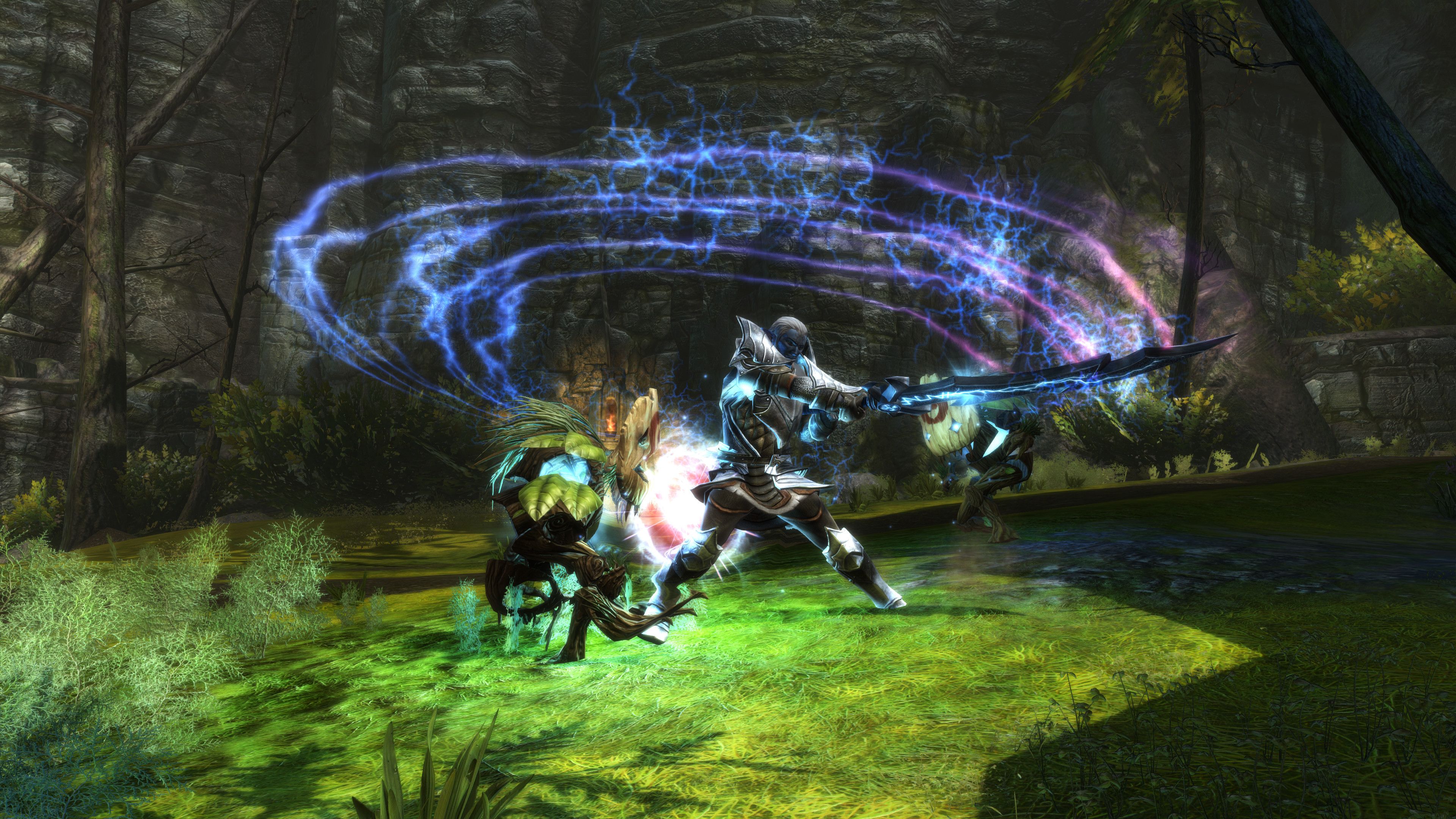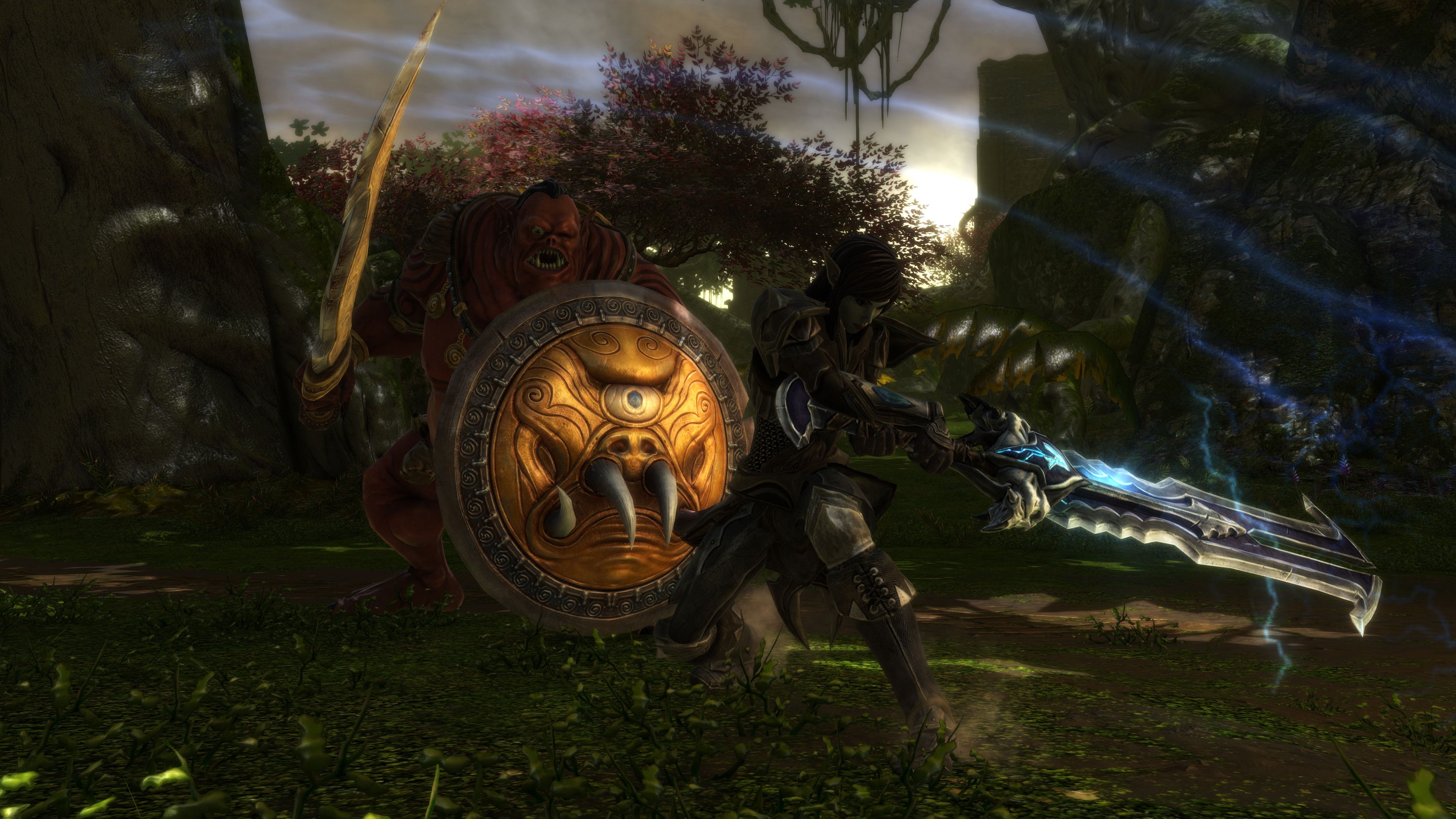Kingdoms of Amalur: Reckoning is one of those unfortunate video games that is remembered for the circumstances that surrounded its release more than the actual game. Launching to good reviews and decent if unspectacular sales in 2012, its tumultuous development and the immediate bankruptcy of developer 38 Studios instead stood as the legacy of the game, especially given the FBI investigation over loans from the state of Rhode Island. Somewhat fittingly, the game has a chance to rewrite its fate through its re-release Kingdoms of Amalur: Re-Reckoning.
Although it seemed like Kingdoms of Amalur: Reckoning would never reappear, the property was given a lifeline after the ever-hungry THQ Nordic added it do its roster in 2018. Soon after, plans were made for a remaster of the game, in the form of Kingdoms of Amalur: Re-Reckoning. It's a chance for more to find out exactly why the game gained a devoted following, although that may not be much solace to the over three hundred developers who lost their jobs after putting their blood, sweat, and tears into its original release.
It's worth remembering that Kingdoms of Amalur: Reckoning did not fail the first time around because it was a bad game, but instead in part because of a misjudgement of the market. As a new intellectual property in the constantly tough RPG space, releasing so close to as impressive a game as Skyrim proved to be a death sentence. This was particularly true when it came to its setup, as an expansive open world RPG that had an awful lot of content to sift through.
Where Kingdoms of Amalur: Reckoning found success was with its combat, and this is still something that is strong in its remaster. Rather than the relatively basic combat of games like The Elder Scrolls series, or the rigidity found in titles such as Dragon Age that maintain some roots in party management, instead Kingdoms of Amalur: Reckoning is more like a hack 'n slash. With a focus on timing and dodging, it's a system that works well across various builds including the use of magic.
In the modern day and without the rose-tinted spectacles of nostalgia it's perhaps not as spectacular as it was nearly a decade ago. However it still holds a certain power, with a fluidity that is reminiscent of the Darksiders series. It's best thought of as a superior version to the dungeon crawling gameplay of games like Diablo 3, with a much greater emphasis on skill and timing.
This is most obvious during Kingdoms of Amalur: Re-Reckoning's boss battles. Although some of them are just a matter of wailing away at an enemy until they fall, most include the need to memorize attack patterns across multiple stages. Some, too, take place in interesting locations such as a notable example on a circular walkway while watching out for archers on raised platforms.
The work that was put into the enemy design is obvious too, across both bosses and low-level grunts. From the vile, slithering crudok to the muscular jottun, there's a great level of variety in both how they look and how to fight them. Although smaller units like kobolds and boggarts can feel repetitive, those larger enemies can make the player think about how to attack before they do so.
It fits well with the overall aesthetic of Kingdoms of Amalur: Reckoning. Rather than a realistic feel, the game sticks with chunky, cartoonish characters that give it the sense of Fable or World of Warcraft. Kingdoms of Amalur: Re-Reckoning is not an especially pretty game to look at, with the remaster not doing much for some awkward character models, but at least this caricature style adds something of a timeless quality.
The game's varied world provides something of a distraction, too, albeit without anything truly unique for fantasy fans. From the greenery of Dalentarth and the Plains of Erathell, through to the swamplands of Klurikon and the Mordor-esque wasteland of Alabastra, there are lots of different areas to explore. It's at its best when the game lets its strangeness get the center stage, such as the floating city in the Teeth of Naros or the crystal forest at the top of Alabastra.
That said, there is a sense that Kingdoms of Amalur: Reckoning keeps a little too close to fantasy tropes. Its races include the elf-like fae, technologically-savvy gnomes, and bog-standard humans, and there's not much of a sense of deep and different cultures within its titular kingdoms. There's a lack of originality here, particularly in comparison to the vivid regions of The Elder Scrolls.
This feeds through to more direct story elements, with a distinct lack of a strong core narrative or any memorable characters. Although its initial story of denying fate is strong, particularly with how it feeds into gameplay through fate energy attacks in Reckoning mode and Destinies that can be picked up for permanent stat boosts, it descends into the usual high fantasy fare before too long. RPGs need a strong story to stand the test of time, and this is the reason why games like Mass Effect and Dragon Age have found such long-term support.
The story does improve a little at times, with worthwhile side quests to find here and there to gain faction support. Unfortunately most quests, including those in the main plot, are extremely basic in what they ask the player to do. Essentially it always boils down to picking up an item or killing a specific enemy; it's obvious that Kingdoms of Amalur: Reckoning's roots were in a plan for a MMORPG, as well as its failed MMORPG sequel.
This leaves Kingdoms of Amalur: Re-Reckoning with a very old fashioned problem. Its lengthy story is intrinsically tied to a permanent gameplay loop of the same kind of combat-based actions, with little respite for things like puzzle solving, investigation, or character relations. Because of this the player is likely to just skip out on non-required combat sections, living out Shakespeare's "exit, pursued by a bear" in all manner of different environments.
This cuts to exactly where Kingdoms of Amalur: Re-Reckoning begins to struggle. Most high-quality modern RPGs have been able to tell an interesting story with casts of likeable characters alongside delivering exciting gameplay. This wasn't always the case with previous generations, where a standard fantasy setting and plenty of monsters to fight could often be enough for a game to get a pass.
Of course, this isn't the fault of Kingdoms of Amalur: Re-Reckoning but just a matter of circumstance. It's an example of just how far improvements have come in this gaming generation, both in terms of emotional impact and with tactile gameplay as a norm. When compared to RPG darlings punching above their weight like Greedfall or Vampyr, Kingdoms of Amalur: Re-Reckoning does unfortunately feel basic.
There are some decent technical improvements to note, even if it doesn't look as spectacular as some might want. Some of the major bugs in the original are thankfully gone, although this reviewer did find odd graphical glitches, including characters popping into frame and strange coloring glitches on dropped items. Woe betide any character that wears a cape, as it will sometimes sweep in and out of their body like a haunted dishcloth.
All in all this leaves Kingdoms of Amalur: Re-Reckoning in a bizarre position. The game deserved much more love than it received with its initial release, but there is an unfortunate sense that its time may have passed. It feels very much like a past-generation RPG, and that’s not necessarily a bad thing, but Kingdoms of Amalur: Re-Reckoning doesn’t really have the depth to overcome this, in spite of its still compelling combat.
Kingdoms of Amalur: Re-Reckoning is still a good game, and fans of the original will be tempted by that 50% off deal. However, it's hard to see what it will gain from this remaster, as much as it would be interesting to see the property live up to its promise. At the very least, Kingdoms of Amalur: Re-Reckoning stands as a testament to how far games have come in one generation that this underrated gem cannot quite recreate its old impact.
Kingdoms of Amalur: Re-Reckoning releases 8 September 2020 for PC, PS4, and Xbox One. Screen Rant was provided with a PS4 download code for the purposes of this review.

